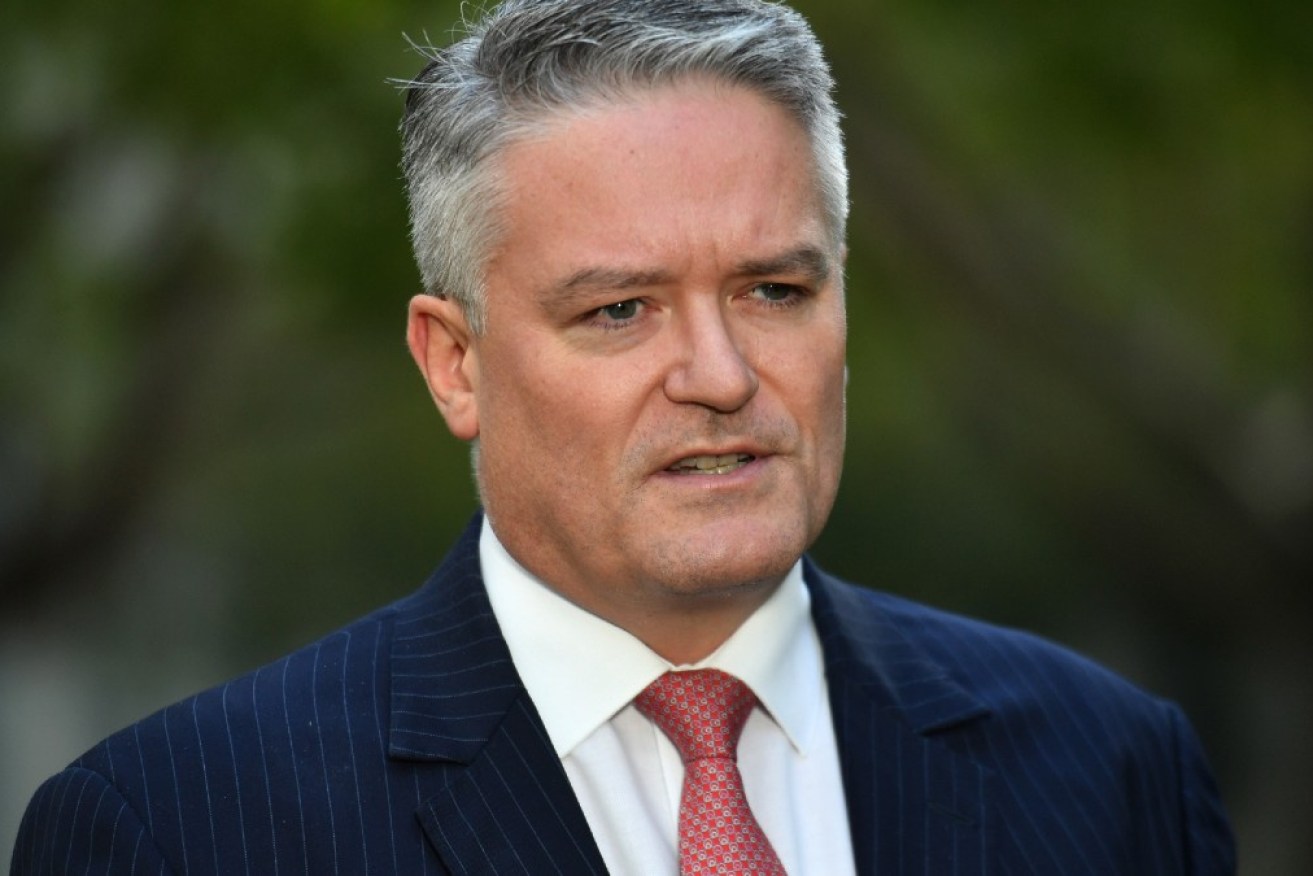OECD: Australia must raise ‘very low’ unemployment benefit


Led by former finance minister Mathias Cormann, the OECD is calling for a higher unemployment benefit in Australia. Photo: AAP
Australia’s treatment of unemployed workers is facing renewed criticism after a major multinational agency called for a higher JobSeeker rate.
As hundreds of thousands of JobSeeker recipients navigate lockdowns on payments set below the poverty line, the Organisation for Economic Co-operation and Development (OECD) declared on Wednesday that the social security net in Australia must be improved.
The OECD, which is headed by former Liberal senator Mathias Cormann, said payments to unemployed workers remain “very low” across Australia.
“Young and low-wage workers experienced the greatest job losses through the pandemic,” the OECD said in its latest survey of the Australian economy.
“[Australia’s] unemployment benefit replacement rate remains close to the lowest in the OECD and below estimates of the relative poverty line.”
Under the current JobSeeker program, unemployed workers receive just $310 per week or $44 per day – below the $581-a-week poverty line.
Payments were more generous this time last year as a result of the temporary $550-per-fortnight Coronavirus Supplement.
But the government ended that program when it increased the permanent JobSeeker rate in April.
Mr Cormann defended pushing JobSeeker rates below the poverty line when working as the nation’s finance minister last year, saying the COVID supplement was a “temporary support”.
But his new employer has said the government should boost JobSeeker and consider pegging it to wages growth, as the current rate is too low.
“[There is a] need for further spending to ensure the adequacy of the social safety net,” the OECD said.
“The income shock from falling into unemployment in Australia is much larger than in other countries.”
Worker advocates want the government to raise the rate to $80 per day.
Antipoverty Centre spokesperson Kristin O’Connell said the OECD had used “very strong language” to press for higher JobSeeker spending.
“It’s just embarrassing for them to be called out by a conservative institution like the OECD, let alone with their own former finance minister in charge there,” she said.
Australian Council of Social Service chief Cassandra Goldie said our employment services model fails to help people overcome job barriers and instead enforces “unrealistic job search requirements”.
“What we really need is more robust benefits that allow people to stabilise their lives, look after their health, and improve their training and education,” Ms Goldie said.
The survey is the OECD’s first on the Australian economy since 2018.

Graph: Deloitte (click to enlarge)
Lowe: Government spending is key
The criticism of Australia’s treatment of unemployed workers comes less than a day after Reserve Bank governor Philip Lowe – an advocate for a higher JobSeeker rate – said tens of thousands of people may lose their jobs over the September quarter amid lockdowns in New South Wales and Victoria.
Dr Lowe said young people are paying a “heavy price” in lockdown and government spending had a big role to play in ensuring economic support is available to workers doing it tough.
“Fiscal policy is the more effective policy instrument in responding to the Delta outbreak,” he said, adding that current support has been sizeable.
“This is because fiscal policy can use the public balance sheet to offset the hit to private incomes during the lockdowns.”
As The New Daily revealed last month, the government is spending tens of billions of dollars less on economic support during current lockdowns than during the first phase of the pandemic last year.
This is largely because the Coronavirus Supplement has ended and many unemployed workers are ineligible for the new support schemes.
OECD: Caution over JobSeeker overhaul
The OECD has also urged the government to be cautious with its new employment services model, which is currently before Parliament.
The new system will overhaul existing JobSeeker legislation, creating a two-tier employment services model that prioritises digital engagement.
The model will require many JobSeeker recipients to undertake training opportunities through private providers, while ripping hundreds of millions of dollars in government funding out of the system entirely.
If job seekers do not complete the required training courses they could lose access to payments.
The OECD said that Australia remains one of the only countries in the world that uses private providers in its unemployment services system.
“Spending on training for the unemployed, as well as the incidence of such training, has historically been quite low in Australia compared with other OECD countries,” the organisation said.
“The authorities should be careful to ensure that the private employment service providers are adequately incentivised to facilitate training for the unemployed under the new system.”
Social services advocates have widely criticised the new employment services model and have argued the government has tried to rush the reforms through Parliament.
Dr Goldie said Australia is underinvesting in quality vocational training and wage subsidy programs.
”The OECD warns that Australia does not invest enough in training for people who are unemployed,” Dr Goldie said.
“In fact, government spending on employment assistance is less than half the average OECD level, as a proportion of GDP.
”We must do better.”
Although legislation giving effect to the new employment services model has yet to pass the House of Representatives, tenders reveal the government is already trying to find providers to create training schemes.
Employment Minister Stuart Robert did not respond to The New Daily’s questions.
A spokesperson for the department of education said the new model will provide incentives for providers to facilitate training for workers.
“The new model will include progress payments which do not exist in jobactive,” a spokesperson said.
“These payments recognise the investments made by providers to get job seekers job-ready, including efforts to reduce or remove vocational and non-vocational barriers.”








